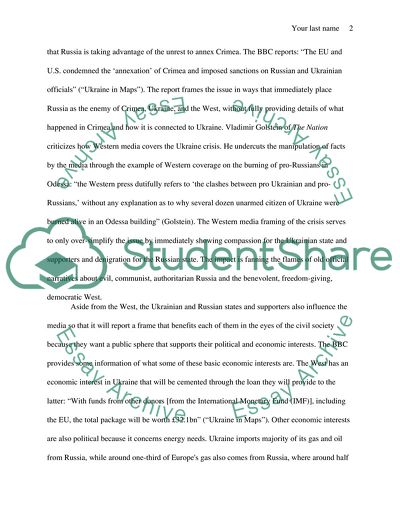Cite this document
(“State-Controlled Media: Different, Biased Versions on the Ukraine Essay - 1”, n.d.)
State-Controlled Media: Different, Biased Versions on the Ukraine Essay - 1. Retrieved from https://studentshare.org/journalism-communication/1647095-use-concepts-to-writer-a-paper
State-Controlled Media: Different, Biased Versions on the Ukraine Essay - 1. Retrieved from https://studentshare.org/journalism-communication/1647095-use-concepts-to-writer-a-paper
(State-Controlled Media: Different, Biased Versions on the Ukraine Essay - 1)
State-Controlled Media: Different, Biased Versions on the Ukraine Essay - 1. https://studentshare.org/journalism-communication/1647095-use-concepts-to-writer-a-paper.
State-Controlled Media: Different, Biased Versions on the Ukraine Essay - 1. https://studentshare.org/journalism-communication/1647095-use-concepts-to-writer-a-paper.
“State-Controlled Media: Different, Biased Versions on the Ukraine Essay - 1”, n.d. https://studentshare.org/journalism-communication/1647095-use-concepts-to-writer-a-paper.


